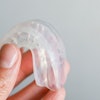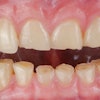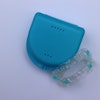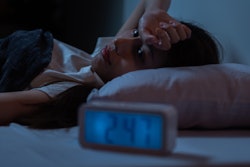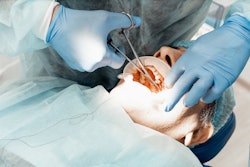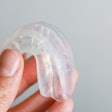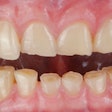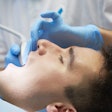
When it comes to sleep quality and severe periodontitis, it may be great to be man. Poor sleep quality may be linked to severe gum disease in women in the U.S., according to a large study published in the Journal of Medicine, Surgery, and Public Health.
Additionally, getting up to urinate a few times nightly was notably linked to severe periodontitis in women, the authors wrote.
"The results highlight a significant association between sleep deprivation and severe periodontitis in females but not in males, underscoring the importance of sex-specific considerations in periodontal health," wrote the authors, led by Rui Pu of the Zhejiang University School of Medicine (J Med, Surg, Public Health, May 20, 2024, Vol. 3, 100114) in China.
The prevalence of periodontitis is high, and its occurrence can be affected by many factors.
To examine the link between sleep and severe periodontitis in adults in the U.S., data from 5,495 people from the U.S. National Health and Nutrition Examination Survey underwent univariate and multivariate logistic regression analyses. These were conducted before and after adjusting for factors, including age, sex, body mass index, and smoking status. Also, a stratified sex-based analysis was done to explore potential sex differences between severe periodontitis and sleep, according to the study.
The analysis revealed a significant correlation between the recommended sleep duration of seven to nine hours nightly and the prevalence of severe periodontitis in women (odds ratio [OR] = 0.68, p = 0.003). In women, urinating twice or three times per night was significantly linked to severe gum disease (OR = 1.44, p = 0.011). This association was more noteworthy in women who urinated at least four times nightly (OR = 1.68, p = 0.035). In men, these correlations were unfounded, the authors wrote.
Nonetheless, the study's limitation was that it was based on participants' self-reported sleep habits. The study may be affected by reporting and remembering bias, the authors wrote.
Furthermore, this study calls attention to the importance of assessing the sleep quality and quantity of patients, specifically women, in the prevention and treatment of gum disease. Also, it may aid in creating new and therapeutic strategies for periodontitis through the improvement of sleep quality and the enhancement of future policies and interventions aimed at oral and overall health, the authors wrote.
In the future, more prospective longitudinal research is necessary to deduce causal relationships between sleep and periodontal health, they wrote.
"Severe periodontitis in women was found to be significantly associated with poor sleep quality, but not in men," Pu and colleagues concluded.


